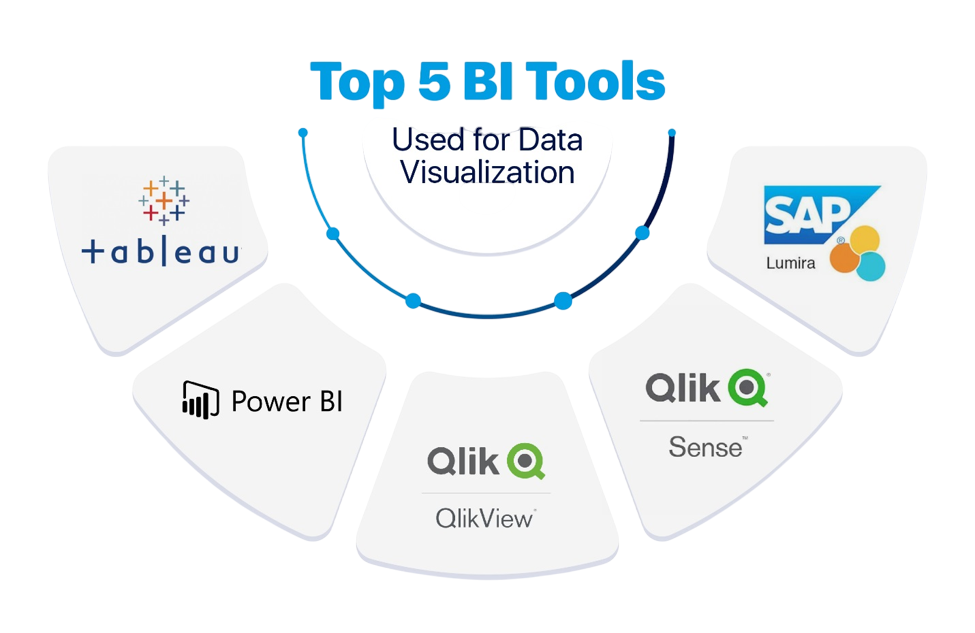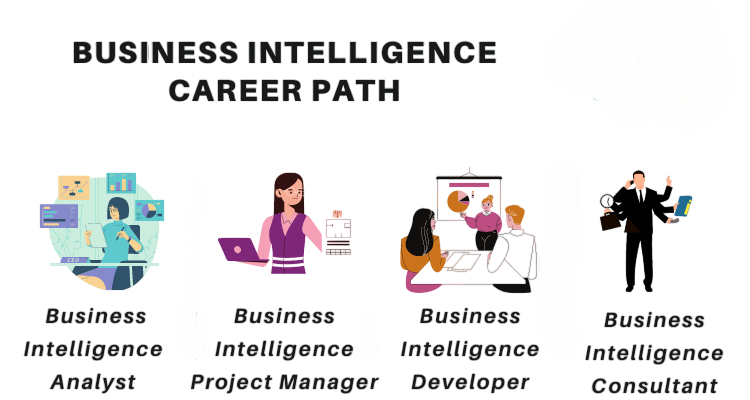
- Business Intelligence Analyst
- Role in Companies
- Skills Required
- Tools for BI Analysts
- Data Collection Techniques
- Data Analysis Process
- Reporting & Visualization
- Industry Applications
- Certifications for BI Analysts
- Salary Insights
- Career Path
- Conclusion
Business Intelligence Analyst
In today’s digital economy, businesses generate vast volumes of data every second. From customer interactions and sales transactions to supply chain metrics and employee performance, data has become the most valuable asset for organizations across industries. However, raw data on its own holds little meaning unless it is transformed into actionable insights. This is where the role of Business Intelligence Analyst becomes essential. A BI Analyst is a professional responsible for collecting, analyzing, and visualizing data in ways that empower decision-makers to act strategically. To develop the skills needed for this role and master tools like Power BI, Excel, and SQL, explore Business Analyst Training a career-focused program that teaches data interpretation, dashboard creation, and business communication techniques tailored for real-world analytics environments. With the increasing reliance on data-driven strategies, the role of BI Analysts has become one of the most in-demand careers in the modern corporate landscape. This guide explores the responsibilities, required skills, tools, industry applications, career prospects, and salary expectations for BI Analysts, providing a complete overview for anyone interested in pursuing this career path.
Role in Companies
A Business Intelligence (BI) Analyst is key, connecting business data with the leaders who make important choices. Businesses need BI Analysts to pull data from different places, sales, customer info, money reports, and online ads. After they get this data, they look for patterns to find useful information. This can help businesses work better, save money, and make more income. To share what they find, BI Analysts make dashboards and reports that show data clearly. To learn how to make these dashboards more dynamic and user-driven, explore Mastering Parameters a focused guide that explains how to use Tableau parameters to create interactive reports, control filters, and personalize visualizations for deeper insights. This makes it easy for everyone to understand, even if they aren’t good with tech. BI Analysts also help with making smart choices by giving predictions, pointing out risks, and suggesting ways to grow. For example, a BI Analyst could see which products sell best in certain areas and suggest ways to better manage stock. Or, in healthcare, they could use patient data to help hospitals assign resources in a better way. So, BI Analysts are very important for helping businesses in all fields run better, by making sure choices are based on real data.
Interested in Obtaining Your Business Analyst Certificate? View The Business Analyst Training Offered By ACTE Right Now!
Skills Required
To excel as a BI Analyst, professionals must possess a blend of technical expertise, analytical skills, and business acumen. Key skills include data modeling, dashboard creation, storytelling with data, and strategic thinking. To understand how these skills align with different analytical approaches, explore Types of Business Analytics a foundational guide that breaks down descriptive, diagnostic, predictive, and prescriptive analytics, helping professionals apply the right method to each business challenge.
- Analytical Thinking: The ability to identify trends, correlations, and anomalies in datasets.
- Database Knowledge: Strong understanding of SQL for querying and managing relational databases.
- Data Visualization: Proficiency in tools like Power BI, Tableau, or Qlik to create user-friendly dashboards.
- Statistical Knowledge: Familiarity with descriptive and inferential statistics for data interpretation.
- Business Knowledge: Understanding industry-specific operations, KPIs, and goals.
- Communication Skills: Ability to present complex data in simple language for managers and executives.
- Problem-Solving: Transforming raw data into solutions for real-world business challenges.
Soft skills such as collaboration, adaptability, and storytelling also play a major role, since BI Analysts often work with cross-functional teams.
To Earn Your Business Analyst Certification, Gain Insights From Leading Data Science Experts And Advance Your Career With ACTE’s Business Analyst Training Today!
Tools for BI Analysts
Business Intelligence relies heavily on specialized software to analyze, manage, and visualize data. The most popular BI tools include:
- Microsoft Power BI: Widely used for interactive dashboards and real-time reporting.
- Tableau: Known for its advanced visualization capabilities and drag-and-drop interface.
- QlikView/Qlik Sense: Offers associative data models for deep analysis.
- SAS Business Intelligence: Popular in large enterprises for advanced analytics.
- Looker (Google Data Studio): Cloud-based BI tool integrating with Google ecosystem.
- SQL Databases (MySQL, SQL Server, Oracle): Core for data querying and management.

A BI Analyst typically works with a combination of these tools, depending on the company’s infrastructure. Knowledge of cloud platforms such as AWS, Azure, or Google BigQuery is increasingly valuable as businesses migrate to cloud-based data solutions.
Data Collection Techniques
In Business Intelligence (BI), the first step involves collecting data. BI Analysts collect structured and unstructured data from different places. Internal databases give key info like sales, HR data, and inventory. Company apps such as ERP, CRM, and financial systems give helpful insights. The internet is also a source, with data taken from websites and social media, capturing user activity, reviews, and marketing data. Also, market research and demographic databases from other companies can make the data better. To learn how to collect, enrich, and analyze data from these diverse sources, explore Business Analyst Training a hands-on program that teaches professionals how to work with structured and unstructured data, apply analytical techniques, and generate actionable insights using tools like Power BI and Excel. BI Analysts also take data from APIs and cloud services like Google Analytics, Salesforce, or AWS. The important thing is making sure the data is correct, consistent, and complete. BI Analysts often work with data engineers to fix and prepare data for study and decision-making.
Want to Pursue a Business Analyst Master’s Degree? Enroll For Business Analyst Master Program Training Course Today!
Data Analysis Process
After gathering data, a BI Analyst uses organized methods to analyze it carefully. First, they clean the data by removing duplicates, fixing missing information, and making sure everything is in the same format. Then, they change the raw data into formats that are easier to analyze. Next, they explore the data to find initial patterns, trends, and relationships, which helps them plan for a more detailed look. To understand how to select, structure, and prepare enterprise data for deeper analysis, explore How to Choose the Right Enterprise Data a strategic guide that outlines key criteria for data selection, transformation techniques, and planning methods for scalable BI workflows. They also use statistical models like regression, clustering, or forecasting to get more information. The analyst then tests assumptions and checks specific business questions using the data. This complete method results in useful information that summarizes the results and solves important business problems. For example, a BI Analyst might study sales data to find seasonal trends, see which products sell best, and predict demand for the next quarter, so the business is ready for future chances.
Go Through These Business Analyst Interview Questions and Answers to Excel in Your Upcoming Interview.
Reporting & Visualization
Raw numbers are difficult for stakeholders to interpret, which makes data visualization a crucial part of the BI Analyst’s role. Reporting involves presenting results in a clear, interactive, and business-friendly format. To learn how to transform raw data into compelling visuals and strategic insights, explore Data Analytics Solutions a practical guide that showcases visualization techniques, reporting frameworks, and real-world use cases for driving business growth.
- Dashboards: Visual summaries showing KPIs, sales metrics, or customer behavior.
- Charts & Graphs: Line charts for trends, bar charts for comparisons, pie charts for proportions.
- Interactive Reports: Filterable and drill-down reports to explore data at multiple levels.
Visualization not only simplifies data but also makes insights more persuasive. A well-designed dashboard can help a CEO quickly identify growth opportunities or operational inefficiencies at a glance.
Industry Applications
BI Analysts play a vital role in multiple industries:
- Retail & E-Commerce: Customer segmentation, purchase behavior, and inventory optimization.
- Healthcare: Patient care analytics, hospital resource planning, and clinical research.
- Finance & Banking: Fraud detection, credit risk analysis, and investment strategies.
- Manufacturing: Supply chain efficiency, production monitoring, and cost reduction.
- Education: Student performance tracking, enrollment forecasting, and resource allocation.
- Government & Public Sector: Policy analysis, budget planning, and citizen service improvements.
The versatility of BI means that analysts can work in almost any industry where data-driven decision-making is valued.
Certifications for BI Analysts
For Business Intelligence (BI) Analysts, certifications are very important for proving skills and standing out in the job market. Some well-known certifications are the Microsoft Certified: Data Analyst Associate (Power BI), Tableau Desktop Specialist/Certified Professional, Qlik Sense Business Analyst Certification, SAS Certified BI Content Developer, Certified Business Intelligence Professional (CBIP), and AWS Data Analytics Specialty. To understand how QlikView fits into this certification landscape and how it empowers professionals to build advanced BI solutions, explore Unlock the Power of QlikView a complete mastery guide that covers QlikView’s architecture, scripting, visualization techniques, and integration capabilities for enterprise analytics. Getting certified can make an analyst more credible and create chances for career advancement. These qualifications can also improve the chances of a higher salary, making them helpful for BI professionals wanting to do well.
Career Path
The career path for BI Analysts is dynamic and filled with growth opportunities. Common trajectories include roles in data engineering, analytics consulting, and enterprise reporting. To understand how mastering tools like QlikView, Power BI, and Tableau can accelerate your journey, explore Unlock Business Intelligence Potential a strategic guide that highlights key enhancements in QlikView 11 and outlines how BI professionals can evolve into high-impact decision enablers.

- Entry-Level: Junior BI Analyst or Reporting Analyst.
- Mid-Level: BI Analyst, Data Analyst, or Data Visualization Specialist.
- Senior-Level: Senior BI Analyst, BI Consultant, or BI Manager.
- Advanced Roles: Data Scientist, Analytics Manager, Chief Data Officer (CDO).
Many BI Analysts transition into data science, big data engineering, or AI-related roles as they gain more technical expertise. The growing importance of data in business ensures long-term career stability and upward mobility.
Conclusion
Business Intelligence Analyst is the heart of today’s data-driven organizations. By collecting, analyzing, and visualizing data, they enable companies to make smarter decisions, optimize operations, and gain competitive advantages. To build these capabilities and apply them using tools like Power BI, Excel, and SQL, explore Business Analyst Training a practical program designed to equip professionals with end-to-end analytics skills for solving real-world business challenges. With the right blend of analytical skills, technical expertise, and business understanding, BI Analysts can build rewarding careers across industries. As businesses continue to generate more data, the demand for BI professionals will only rise, making this one of the most future-proof and lucrative career paths in technology and business.




